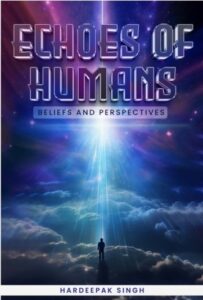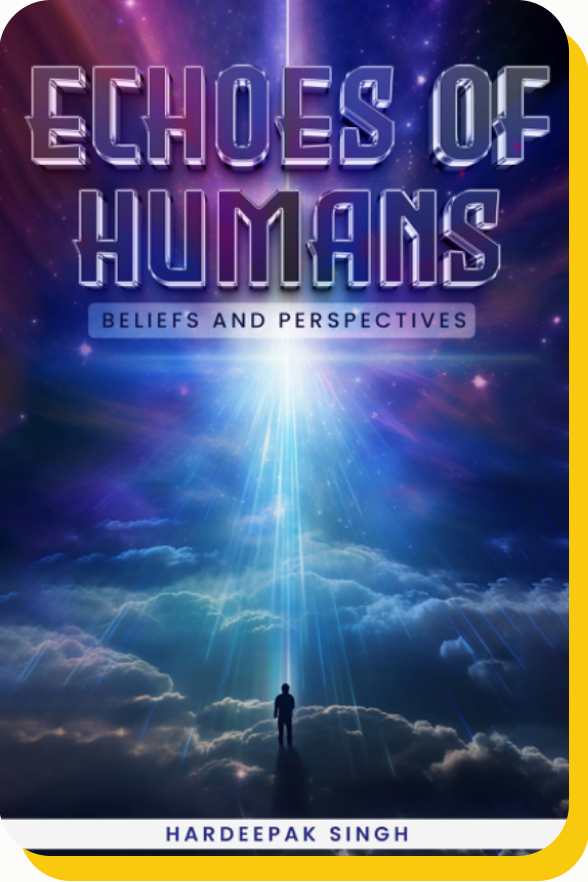LATEST RELEASE BY HARDEEPAK SINGH
Echoes Of Humans:
Beliefs And Perspectives
With over 900 quatrains, the poem embarks on an
unprecedented journey into the key foundations of human
thought. These are the five major religions (often referred
to as the ‘Big Five’) of Hinduism, Judaism, Buddhism, Christianity, and Islam—along with the ancient Greek and Chinese philosophies.


ABOUT THE
AUTHOR
HARDEEPAK SINGH
Hardeepak Singh is a distinguished alumnus of Punjab University, Chandigarh, and Columbia University, New York. Raised in a small village in Punjab before moving to Ludhiana in 1955, he embraced the opportunities of a more dynamic academic environment. In 1976, he joined India’s elite administrative service, holding several high-level positions, including in the Prime Minister’s Office and the Ministry of Finance. He played a key role in launching India’s road infrastructure revolution and spent five years as a Consultant with the Asian Development Bank (ADB) in Colombo. His wide-ranging travels and deep interactions with diverse communities, such as the Amish in Ohio and the Ao and Konyak tribes in Nagaland, developed his interest in exploring various faiths and philosophies.
His first book, 543 Faces of India, was a pioneering psephological study that mapped the demographic composition of each Lok Sabha constituency, earning recognition from political circles. Recently,his third book Aphorsims for All, has also been published. The work contains nearly 500 original aphorisms, reflecting his wit and covers the entire gamut of human experience. Hardeepak’s journey traverses from shaping of the public policy to scholarly pursuits and his profound desire to understand the dilemmas and complexities of human nature.

ECHOES OF HUMANS
ABOUT THE
BOOK
Echoes of Humans: Beliefs and Perspectives is a pioneering poetic work featuring over 900 quatrains that explore the foundational beliefs of humanity. It examines the five major religions—Hinduism, Judaism, Buddhism, Christianity, and Islam—alongside ancient Greek and Chinese philosophies, tracing their historical and intellectual impact. Spanning from antiquity to the early modern era, the poem captures humanity’s journey through abstract reasoning, societal evolution, and the birth of key spiritual and philosophical ideas, offering a unique perspective on the very nature of human understanding.